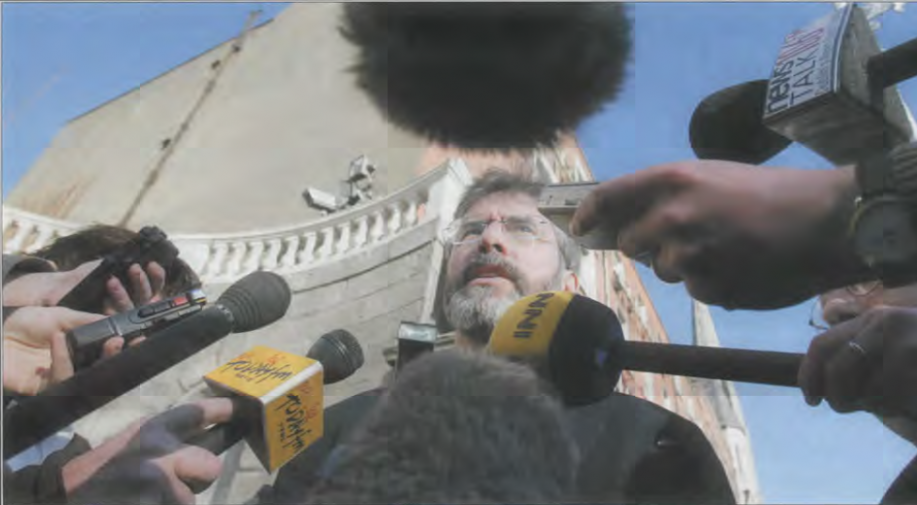July’s announcement that the IRA was ending its military campaign drew a muted response from political quarters north and south of the Irish border. Although the statement was potentially historic by calling on IRA activists to unconditionally dump arms, unionist politicians again reacted skeptically to how decommissioning would take place and be independently verified.
The arms call, however welcome, was also greeted with caution in Dublin. Even before the statement was issued, Minister for Justice Michael McDowell, an outspoken adversary of armed republicanism, questioned whether an IRA declaration amounted to fundamental change in policy or a publicity stunt.
“The real issue is whether the actions match the words,” he warned, before taking his summer vacation. “We are no longer in the business of fudge or equivocation — there has to be clear, unambiguous language used and the people of these islands are entitled to clear and unambiguous language.”
The Democratic Unionist Party (DUP), the dominant party within unionism, has already put pressure on London and Dublin to prove that decommissioning is actually taking place. The DUP has threatened to hold off sharing power with Sinn Féin for two years, during which time the decommissioning process can be assessed. “If they do things openly and transparently, then obviously the period of assessment could be significantly shortened,” said deputy leader Peter Robinson.
On previous occasions the procedural means of monitoring and verifying the destruction of weapons has presented a serious stumbling block to the peace process. Unionists want clear photographic evidence while republicans refuse to provide evidence that could be construed as humiliating surrender. Republicans are prepared to resolve the impasse through the Independent International Decommissioning Body headed by John de Chastelain, a mechanism in which unionists have shown very little faith.
At constitutional level, the Northern Ireland assembly is currently suspended and the next elections are not due until 2007. Government sources in Dublin and London expressed some hope that the IRA initiative might kick-start the Stormont assembly back into life next spring. However, unionism’s cool response to recent developments makes it more likely that devolved government will stay on ice somewhat longer.
Unionist leaders have condemned the early release of republican prisoner Scan Kelly, who had been jailed for planting a bomb in a Shankill Road fish shop, killing ten people in 1993. They are also aggrieved that a number of significant concessions have been made to republicans on foot of the IRA announcement. They argue that these concessions were made without any proof that the military order to dump arms has been put into effect.
It is seven years since the Good Friday Agreement was signed in 1998. Although political progress has been frustratingly slow at times, its very survival in a time of relative calm stands partly in tribute to the efforts of former Northern Secretary Mo Mowlem, who died several weeks after the IRA announcement. The 55-year-old suffered from a brain tumor and underwent radiotherapy in 1997 prior to collaborating on the historic Belfast Agreement the following year ♦


Leave a Reply